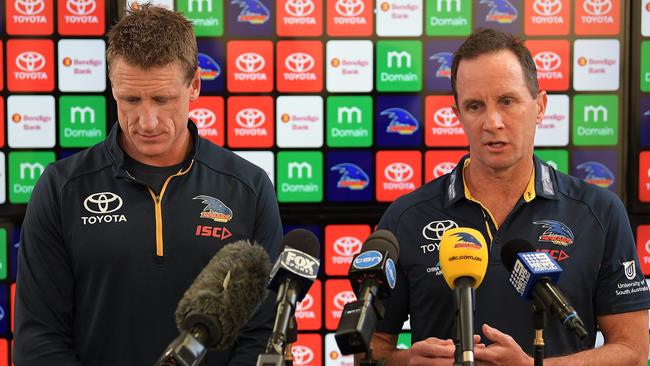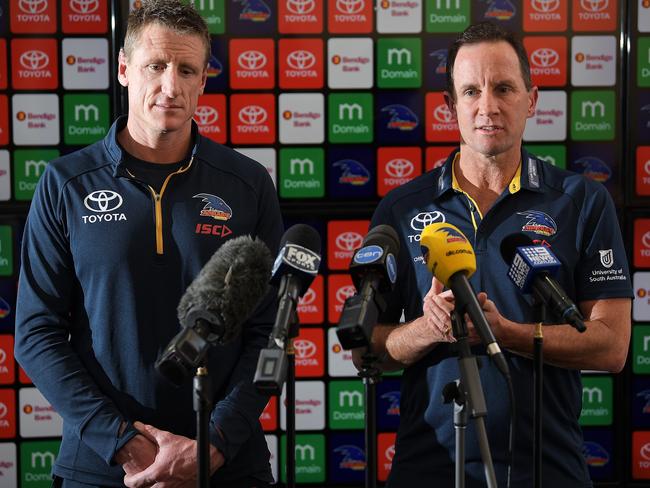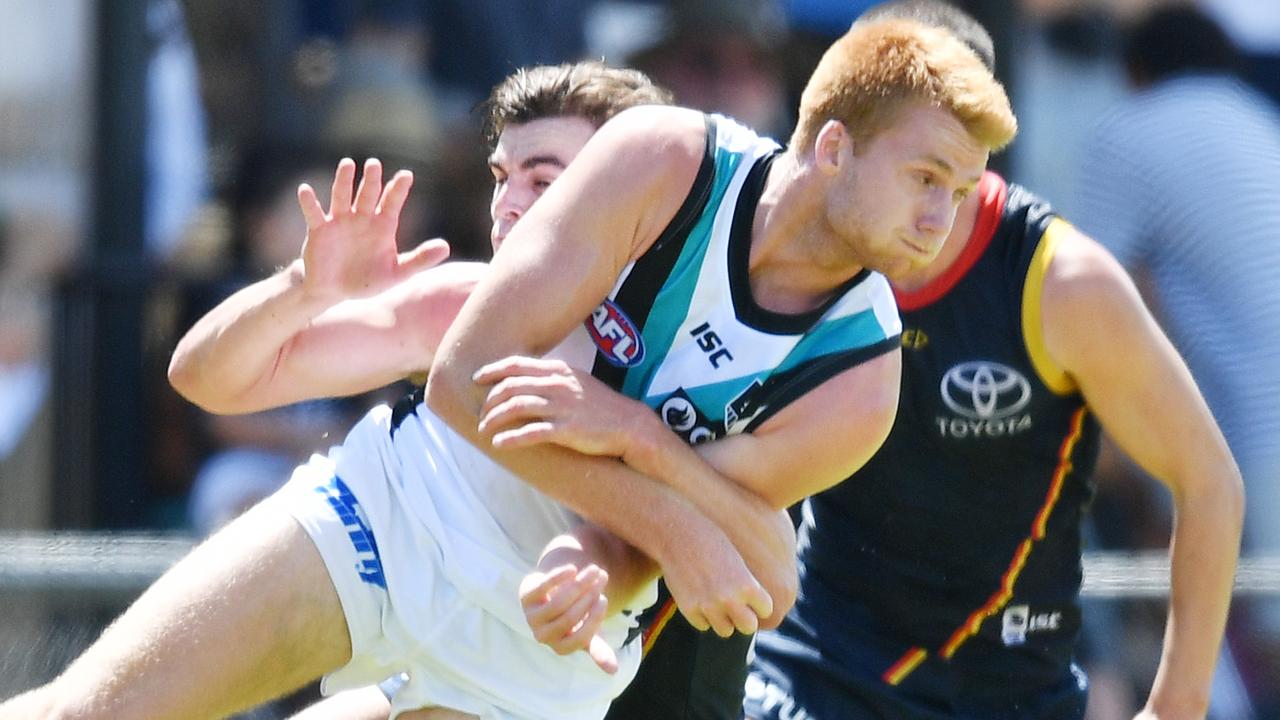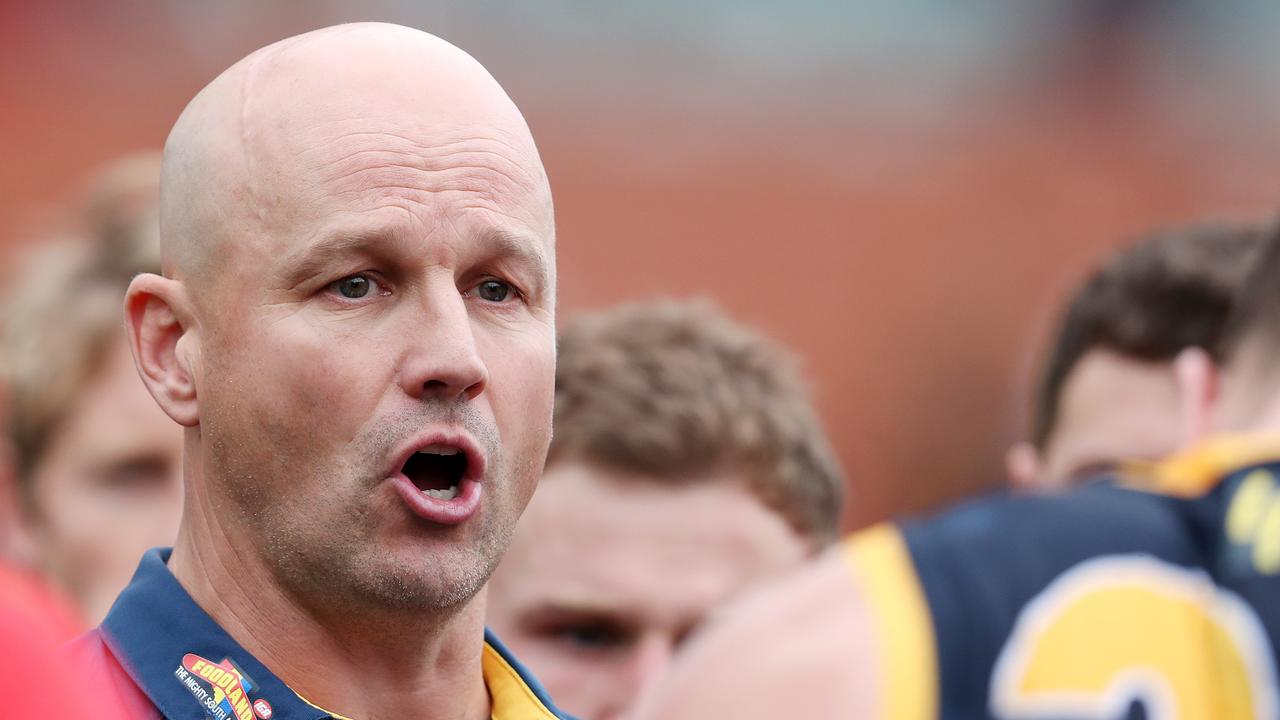Has mind training gone too far when it comes to helping a wounded team learn to heal?
MORE is not always better and sometimes the simplest psychological circuit breakers are the best, writes chief sports writer Reece Homfray.

Reece Homfray
Don't miss out on the headlines from Reece Homfray. Followed categories will be added to My News.
MORE is not always better and sometimes the simplest psychological circuit breakers are the best.
Elite sport has become an arms race among athletes and teams to find any physical, mental and technological advantage they can.
As a result sometimes they go too far and this year Adelaide clearly did.
The Crows cannot be questioned for wanting to improve after being smashed in last year’s grand final and searching for reasons why.
In the wake of Richmond’s premiership triumph it was revealed the Tigers had weekly honesty sessions where players were asked to share a hero, hardship and highlight in their lives which at times resulted in tears.

Adelaide had worked with Collective Mind in 2017 and made it to the last Saturday in September, so wanting to build “resilience” and strengthen the “bond” among the players, decided on a pre-season mind training camp.
But some elements of the camp were too much and the decision-makers were either ill-informed or under-prepared and misread the impact it would have on the group.
In essence in turning to mind training they tried too hard to find a solution when sometimes in sport the answer could be as simple as hidden behind an honest chat over a beer.
For cyclist Anna Meares at the 2012 London Olympics, it was chocolate.
Meares was a psychological mess after losing the keirin - of which she went in as reigning champion and red-hot favourite - and finished fifth behind her arch rival Victoria Pendleton.
Devastated but still with the individual sprint to ride, Meares was given a block of chocolate and told to eat it.
The champion cyclist had given up chocolate for the year and vowed she wouldn’t eat it until after the Games, but as she removed the wrapper the pressure valve was released and two nights later she went out and beat Pendleton to win Olympic gold against the odds.
No mind training, no listening to the British anthem, no studying vision or analysing data.
And it’s commonplace for under-performing football teams to go to the pub, to the beach, to jiu jitsu classes or anywhere other than the footy club to break the monotony of training and remind themselves the game is meant to be fun. Again, sometimes the simpler the better.
It is clear what Adelaide was trying to do but the club got it wrong with the pre-season camp and compounded the problem by taking six months to either realise it or admit it. But now having finally done so and split from Collective Mind, could it be the pressure release the players needed?
At 6-7 on paper their season is not over and in the past two weeks Richard Douglas and Tom Lynch have both re-signed in show of solidarity.
Lynch, Rory Sloane, Rory Laird and Luke Brown could all return to play West Coast this weekend in a welcome boost to the team.
After a week off and the weekend’s events, they’ve hit reset but is the damage already done and is it too late to save their season?



